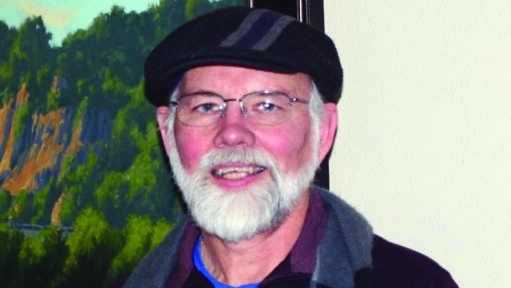Gray Area Words and the Shaping of Community
Building an Antiracist Community
By Tim Johnson
Gray Area Words and the Shaping of CommunityMy uncle had little chance of winning the argument. There are no dinosaurs in the Bible, therefore, according to my grandfather, there were no dinosaurs. No matter how many dinosaur bones and fossils were collected and exhibited in museums, the Bible’s failure to mention dinosaurs meant no such thing existed. For my grandfather, it was an open and shut case, grounded in a literal reading of the Bible. Reportedly Supreme Court Justice Alito has taken a similar approach when it comes to a women’s right to make decisions about their own bodies and in particular the right to make a decision about abortions. When it comes to reading the constitution, an approach called originalism, utilized by Justice Alito and other justices are the equivalency of biblical literalism. If there is no mention of women’s rights in the constitution then there are no such rights. The risk now is that this same principle may soon be applied to other rights which find no explicit mention in the constitution such as the recently identified right to marry for LGBTQ citizens.
Fortunately, for those of us who lived with my grandfather, his biblical literalism around things like the existence of dinosaurs was tempered by his belief that when the Bible said love was the highest priority one also needed to take that literally. Love is one of those words that make a lot of room for the Gray area, which is commonly the place of listening, learning, and conversation. In a passage often quoted at both funerals and weddings, the Apostle Paul says, “Love is patient; love is kind; love is not envious or boastful or arrogant or rude. It does not insist on its own way…” My grandfather might stubbornly argue about dinosaurs, but a belief in the primacy of love tempered his literalism with kindness and compassion.
One would think and hope words like “freedom” might also temper constitutional originalism, making space for the rights of women, Indigenous people, African Americans, those who are LGBTQ, and everyone initially excluded in the imagination of the land-owing white men for whom the U.S. Constitution was originally written. When these gray area words are ignored then one is left with the exclusion of conflicting reality, regardless of how compelling the evidence might be.
Both biblical literalism and constitutional originalism, when untempered by gray area words like love and freedom, reinforce what author Diane Eisler in her book “The Chalice and the Blade” refers to as a domination model for how society should be organized. This domination model, rooted in hierarchy, means one portion of society dominates another, men over women, whites over Black, Indigenous and People of Color until everyone has a ranking in this social order. Eisler contrasts a domination model for organizing the social order with what social theorists refer to as a partnership model. Unlike a domination model, a partnership model is grounded in mutuality where there is space for the voice and experience of everyone. A partnership model makes room for the gray area words that open up conversation and ultimately hearts.
Those gray area words are essential for families, communities, and frankly for national policies, including Supreme Court decisions. Anytime an argument is won through exclusion or denial we are diminished as a result. Dinosaurs existed whether one believes it or not. Women’s rights and the rights of others excluded exist whether the original framers of the constitution imagined them or not. Gray area words push for many perspectives, offer opinions that are unafraid of the world as it is and never lose sight of the compassion upon which our communities and very existence depend.
Tim Johnson is a retired pastor of the United Church of Christ.




